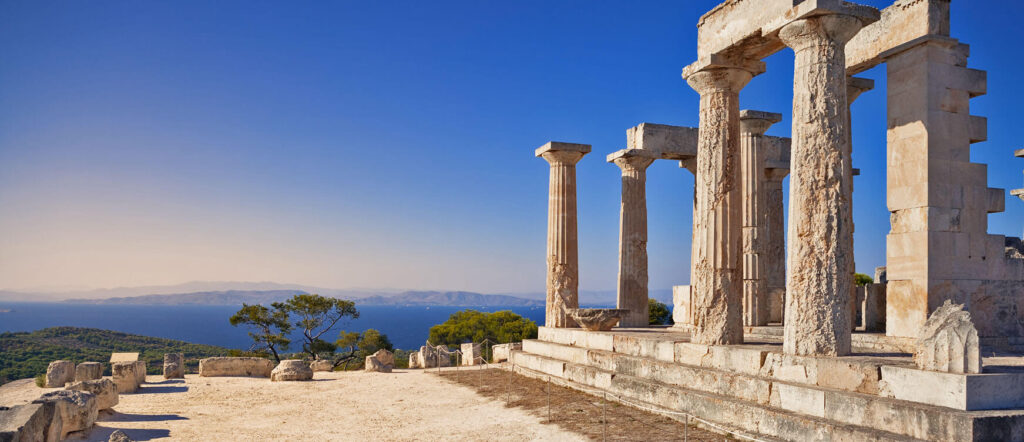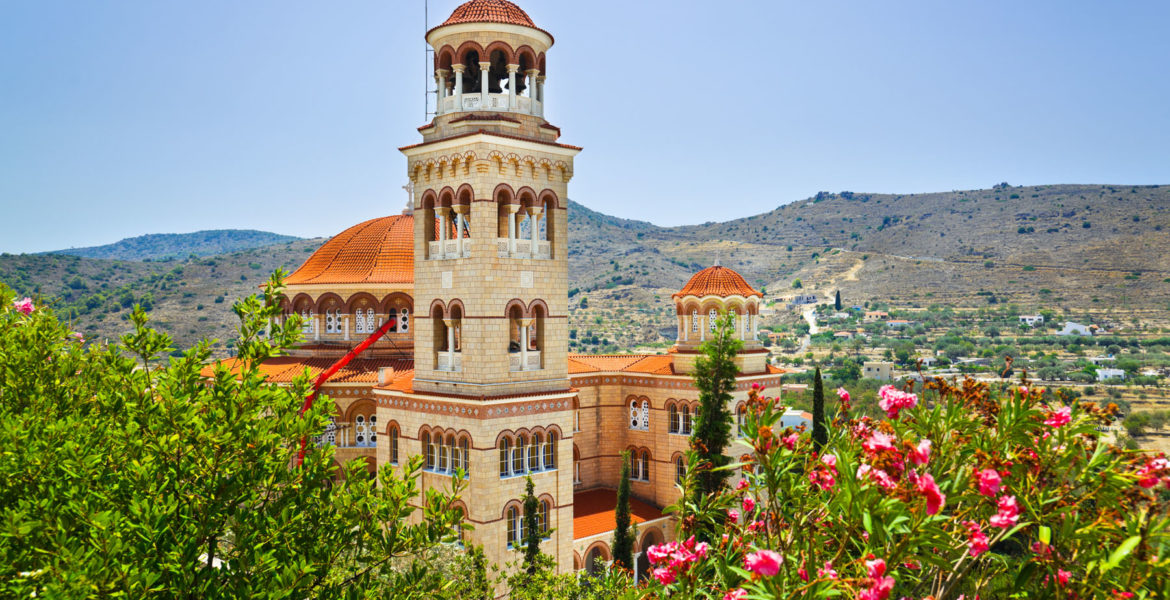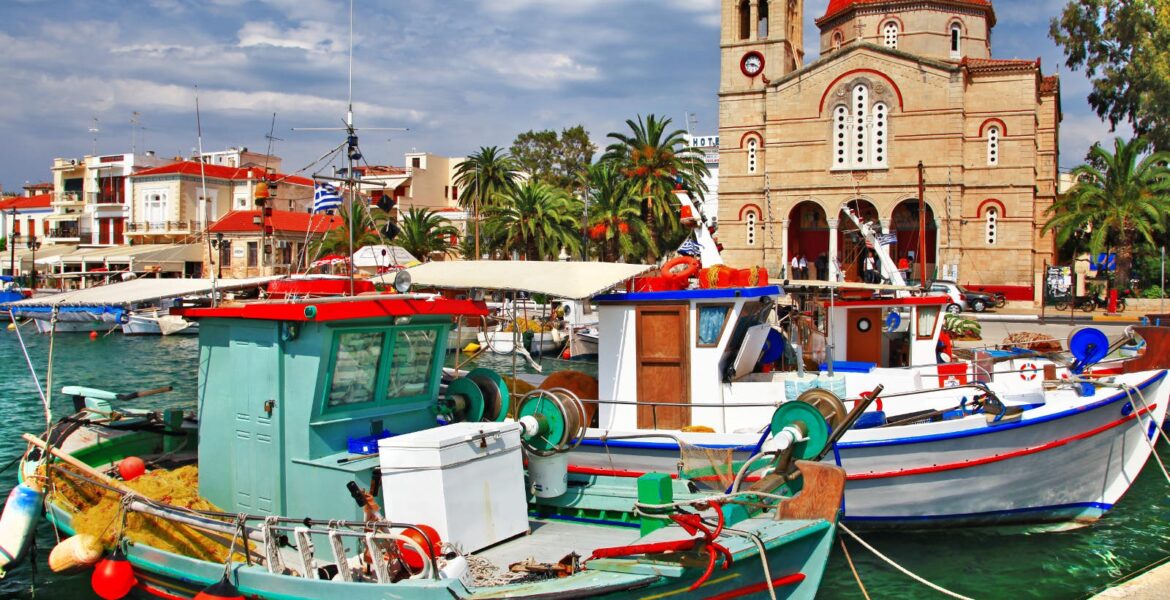Aegina is wholly connected to Athens because of its geographical proximity and undisturbed and multifaceted relationship with the Greek capital's history.
The island offers relaxation, adequately covers the needs of food, accommodation and entertainment and does not expose visitors to an overly noisy environment. Aegina offers great swimming experiences at its beaches, such as Klima and Agia Marina.

There is certainly a lot of history, beginning in antiquity and reaching the birth of modern Greece.
Here dominates the trace of Aphaia, the local deity, imprinted on the temple at the top of a pine-covered hill dating from around 500 BC.

Here, you will find the prehistoric settlement of Kolona, the medieval settlement of Paleochora and the Tower of Markellos.
Of course, there are also traces of the first birth moments of today's Greek state in buildings such as the Kyverneio (Government Hall)—Governor Kapodistrias House, the building from which the first governor of the country, Ioannis Kapodistrias, administered the country.
Next to them is the Christian dimension, reflected in the church of Agios Nektarios in Aegina, one of the most sacred landmarks of Orthodoxy.

The deciduous pistachio tree is the star of the island's culinary tradition,
Natural beauty, history, and unique flavours define a trip to Aegina, so close to Athens yet so exotic. With many varied stops, it will satisfy every discerning traveller.
READ MORE: Agios Pavlos: The isolated beach in Crete with a Byzantine church and beautiful waters.

